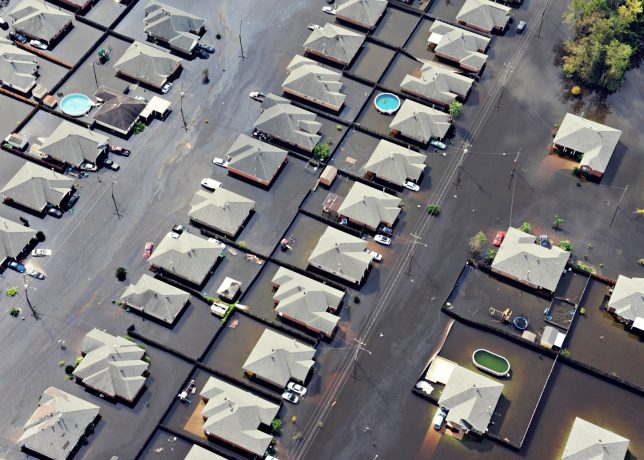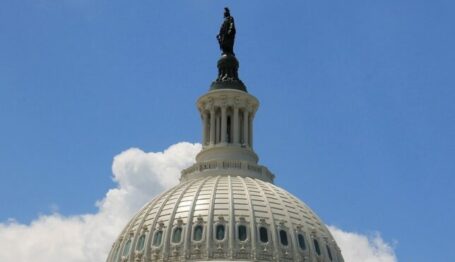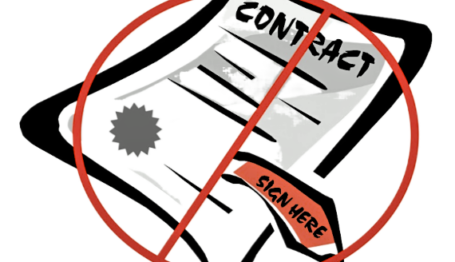Philanthropy
When Disaster Hit, Private Citizens Were Ready to Step In
 Image credit: Philanthropy Daily.
Image credit: Philanthropy Daily.

Crossposted from Philanthropy Daily — dated February 8, 2018
When I read stories in the newspapers about the Cajun Navy, a group of volunteers with boats who helped save people from disasters in Louisiana and Texas, they came across as admirable people who reached out to help others. I didn’t think there was anything bad to say about them.
But then I read Miriam Markowitz’s article about the Cajun Navy in GQ and I realized the Navy could be attacked.
The subtitle of Markowitz’s piece says where she is coming from when the Cajun Navy is called “vigilante disaster relief.” Vigilantes! You know… people with guns!
Sure enough, Markowitz leads her piece with an anecdote told her by Ben Husser, who spent 30 years with the Air National Guard. Husser and his colleagues showed up in a nursing home in Port Arthur, Texas, where they found 65 residents in their beds or chairs in rooms with a foot and a half of sewage-filled water. The seniors hadn’t eaten for a day and many were dehydrated. Most were not fully dressed.
Husser went to the director of the nursing home, who said that he would only allow the seniors to be evacuated by the Air National Guard because it was “corporate policy.”
“I had to beat the hell out of the nursing home director,” Husser recalled, and yes, at one point he drew his gun. The director then gave Husser a black eye. But Husser also made contact with a Louisiana congressman he knew and sent video of the flooded nursing home. The congressman said, “Do what you have to do to get these people out.” Husser then showed up with Port Arthur police, who arrested the nursing home director. The Cajun Navy then took the seniors to high ground.
This seems admirable to me.
But Markowitz, who spent two weeks watching members of the Cajun Navy rescue people stranded by Hurricane Harvey, sees the navy as part of the failure of government to deal with disasters.
“Volunteer rescue speaks to the fantasies of an American public that prizes, above all else, the right to bear arms,” she writes, “not just to defend themselves and their families, but to organize into militias when necessary. This is a fantasy shared by white people, rich and poor, across America, including our president, who sent a clear message in choosing to honor the Cajun Navy alongside the National Guard.”
Markowitz has a full deck of race cards, and plays all of them. She admits that there is no evidence the Cajun Navy discriminates in who it saves, and that the navy saved hundreds of African Americans in New Orleans stranded by Hurricane Katrina. But she claims that the Trump Administration did little to help Puerto Rico recover from Hurricane Maria because the commonwealth is “full of people who aren’t white and thus not a national priority.”
If Markowitz wants to question the competence of federal disaster relief to Puerto Rico, she could make a good case. But I see no evidence that the government screwed up because some bureaucrat realized that most Puerto Ricans don’t have ancestors who came on the Mayflower. Moreover, the reason many Puerto Ricans don’t have electricity months after the hurricane is not because of an inside-the-Beltway Scrooge ecstatic at watching people suffer, but because the commonwealth has had bloated, incompetent government for decades and a power company that squandered billions and neglected to perform necessary maintenance.
However, none of Markowitz’s opinions can compare to the “angry liberals,” who she rightly condemns as callous, who tweeted that “Texas, after voting against funding for Hurricane Sandy relief, should be left to fend for itself after Harvey—climate deniers and Trump voters should not, in their opinion, expect relief from outside sources when they failed New York and New Jersey.”
Markowitz is on firmer ground when she says that many of the Cajun Navy groups were disorganized and that volunteer dispatchers whose only training is knowing how to use the Zello app are less competent than professionals. But she also notes that some of the Cajun Navy groups are organizing as nonprofits and working with their churches in preparing for the next disaster. Moreover, many of the people commanding Cajun Navy boats are veterans who understand the importance of chains of command.
What the disasters of 2017 taught us is that there are many groups, and all have their place.
The American Red Cross, Leslie Lenkowsky argues, is like the Postal Service; it will always be the largest disaster relief organization with the most resources, but it is slow to organize and often last to arrive. Other groups are smaller and nimbler but don’t have the strength of the Red Cross or the Salvation Army.
The Cajun Navy are equivalent to first responders. When you see someone hit by a car, do you walk past, saying this is a job for paramedics? Do you quiz the victim to see if he or she has correct opinions on politics? No, you call 911 and give first aid if necessary until the ambulances show up.
That’s what the Cajun Navy should be—the volunteers who show up in disasters and help until the professionals arrive. They don’t replace government, but supplement it.
Of course the Cajun Navy can improve and organizing into nonprofits can help. Perhaps other nonprofits can offer training, as long as the training does not result in mandatory certifications.
But we should respect the role the Cajun Navy plays, not condemn them for not being full-time government employees.



